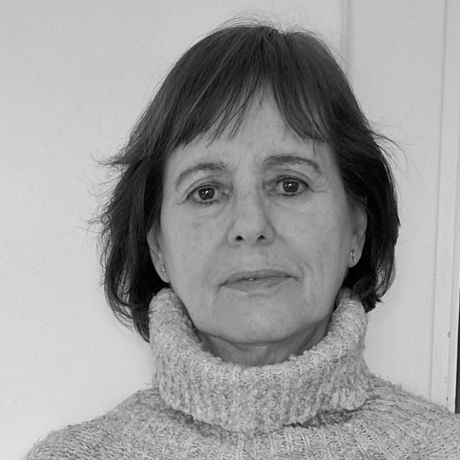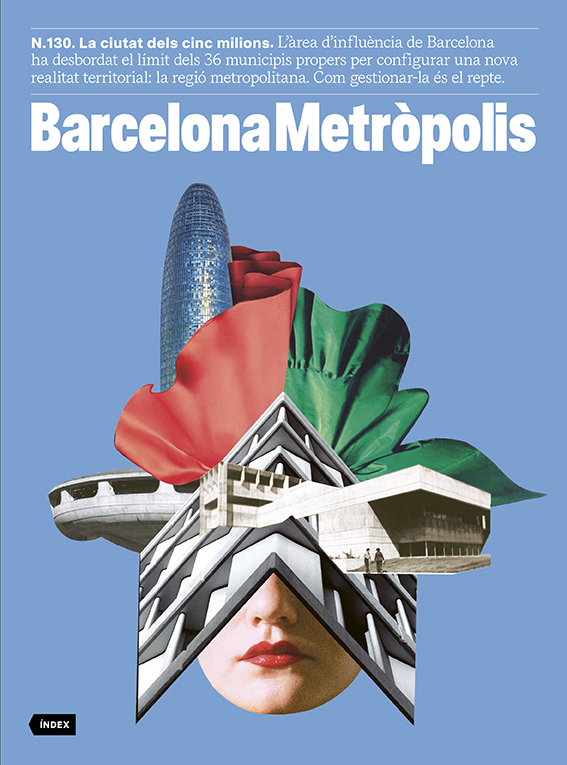He liked to be defined as a journalist. And a theatre critic too. I’ve known him for so long that I don’t remember how we met. What I do remember are some of the many responsibilities he held at the City Hall, where he was in charge of Culture Services from 1979 to 1983.
We first crossed paths in 1976 at El Correo Catalán. Even though he always seemed rushed, we still found time to discuss current events, and he would occasionally inquire about my children. Over the years, I’ve come to realise that he was attuned to the hidden depths beneath a person’s gaze. A straightforward and candid man.
In the article “Els Grecs que van néixer l’any 1979” [The Grec Festival Born in 1979] from the book Grec 25 anys (1976-2001) [Grec 25 Years (1976-2001)], Benach wrote: “To organise a Grec festival in less than five weeks: I doubt we could find anyone in the theatre profession or public administration willing to embark on such a foolhardy endeavour…”. His fervent desire to contribute to cultural events like El Grec inspired the entire team who worked alongside him to create a festival that continues to thrive today.
His decision to stage Peter Brook’s La tragedia de Carmen [The Tragedy of Carmen] in a warehouse at the former Mercat de les Flors was a turning point in establishing this venue as a cornerstone of performing arts and contemporary creation. He also curated or directed exhibitions such as Catalunya, la fàbrica d’Espanya 1936 [Catalonia, the Factory of Spain 1936], Catalunya i ultramar: poder i negocis a les colònies espanyoles (1750-1914) [Catalonia and Overseas: Power and Business in the Spanish Colonies (1750-1914)] and Barcelona Creació [Barcelona Creation], held in 1990 in the city of Yokohama. The City Council aimed to showcase the transformation sparked by the Olympic Games.
Joan Anton Benach, who passed away on 10 February, was the first director of Barcelona Metròpolis, serving from 1986 to 2006.
Barcelona Metròpolis Mediterrània (BMM) was a concept proposed by journalist Joan Anton Benach to Mayor Maragall, amidst the excitement generated by the announcement of the Games. He envisioned a magazine for the city, not the Administration. BMM captured urban transformations, history, popular festivities, businesses and shops, museums, writers, lawyers, educators, musicians, actresses… The city’s entire social fabric, encapsulated in 96 pages, published three times a year, in Catalan and Spanish with a summary in English. His vision was upheld from 1986 to 2006. Subsequently, it became a magazine of urban life, thought and debate.
In 1986, Joan Anton Benach’s office was located in the Programming Technical Office on the twelfth floor of the Edifici Novíssim building. And, adjacent to the library, the editorial office was established. Conditions were basic, but enthusiasm soared. Benach established modest rates, the same for all contributors. It wasn’t fair to make exceptions, he argued. Yet, everyone wanted to contribute; they appreciated Benach and loved the magazine. It was challenging to explain to contributors that financial management was slow. Sometimes they got upset, which concerned the director. He often had to explain to the manager that he couldn’t commission articles if contributors hadn’t been paid for six months.
BMM’s Monogràfics [Monographs] were published by the Administration under the auspices of Mayor Joan Clos. They involved officials and technicians from public administrations in titles such as “City of Knowledge”, “Strategic Metropolitan Plan of Barcelona”, “The Forum”, or the latest issue, “Barcelona and Books. The Books of Barcelona.”
From Plaça de Sant Miquel, we moved to Carrer de la Ciutat, then for a few years to Carrer del Paradís, and when they demolished the top floors of the Edifici Novíssim, to the Publications Department in Zona Franca. He was disappointed with the treatment he received.
One day, Benach asked me, “Which do you think is better: being faithful or being loyal? Where do you feel more comfortable?”. It caught me off guard, and while I hesitated, perhaps unknowingly, he defined himself: “I opt for loyalty”. And I pondered the meaning of loyalty: the commitment to agreements with others, adherence to certain codes of conduct, the coherence of shared values and a moral-political ideal.
Carme Anfosso, coordinator of BMM-BM from 1986 to 2011
The newsletter
Subscribe to our newsletter to keep up to date with Barcelona Metròpolis' new developments




